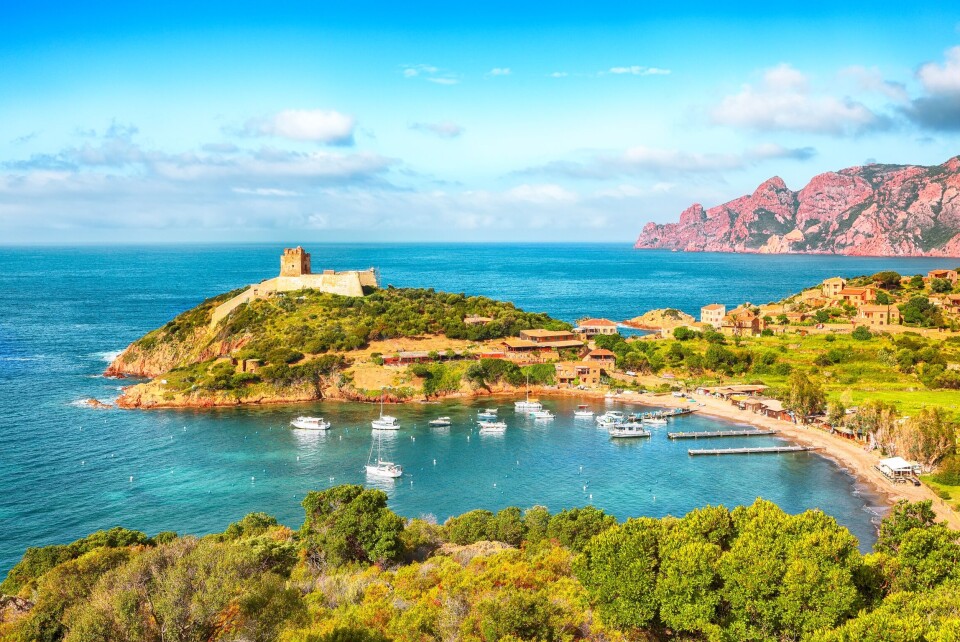-
Britons are the largest foreign community of second-home owners in Nouvelle Aquitaine
See which other departments in the region are popular with British nationals
-
Travellers risk extra costs under new Eurotunnel ticket rule
Some fare options are less flexible and less forgiving of lateness
-
May will be difficult month for train travel in France, warns minister
Two major train unions are threatening to strike and are ‘not willing to negotiate’, he says
Macron proposes step towards some autonomy for Corsica
Corsican politicians will been given six months to agree to position that ‘is neither against nor without the state’

President Macron has announced a new measure that could lead to Corsica gaining some autonomy.
After 18 months of discussions, the president visited the island on September 28 to outline a potential new status that could change the relationship between the island and the French state.
In his address to the Corsican Assembly, which is dominated by separatist parties, Mr Macron praised the independent spirit of Corsica and expressed his intentions to include a specific article in the French Constitution to address the island's special status.
He says this would give it a degree of autonomy while remaining part of the Republic.
The island has long been a thorny issue for the French Republic. Indeed, the man who overthrew the Republic - Napoleon Bonaparte - was Corsican. While it has been a part of France 1768, the independence movement is well implanted in the linguistic, historical and cultural identity of the island.
Separatist politicians have demanded talks on Corsican self rule for many years. In 2017, The Connexion spoke to one of the founders of the modern Corsican nationalist movement, Edmond Simeoni, who has since died.
Mr Macron told the Corsican Assembly that under this plan Corsica would be “neither against the state nor without the state”.
This would give Corsica the “right to adapt” to meet the local needs of its 340,000 inhabitants and to account for the “specificities” of the island.
Mr Macron will hope that the announcement will “turn the page” on a period tarnished by years of overt and latent violence, including bombings.
Discussions between the government and local politicians started 18 months ago after violence erupted following the murder of Yvan Colonna, a Corsican militant who had been in prison since 1998 for the assassination the island's prefect, Claude Erignac.
Among Mr Macron's proposals were improvements to the teaching of the Corsican language, placing it at the heart of life in Corsica and promoting bilingualism.
Mr Macron also said that he was favourable to Corsica legislating on certain defined subjects but added that this could only happen under the oversight of the Conseil d’Etat (France’s highest administrative jurisdiction).
The president announced that Corsican politicians would have six months to agree on a “constitutional and organic text” concerning the proposals, which could then be presented for consideration in Paris.
Should Corsican politicians agree to Mr Macron's proposal, much work will still be needed in Paris to make the changes that Mr Macron has proposed.
French law requires that a three fifths majority of both houses of the Senate and Parliament, united in the French Congrès, vote on changes to the constitution.
This may prove impossible for Mr Macron. Already, the senate leader of Les Républicans (right-wing) declared that the demands of Corsican nationalists “crossed red lines".
However, in Corsica Mr Macron's proposals have been greeted with cautious optimism, with Corsican separatist politician Jean-Christophe Angelini saying "there are some reasons to believe that it can be done."
"I'm quite optimistic, and tonight I think that was the feeling, that there has been a change in mindset."
Related articles:
More charcuterie from Corsica given controversial EU protection
Key points from President Macron’s TV interview last night
























